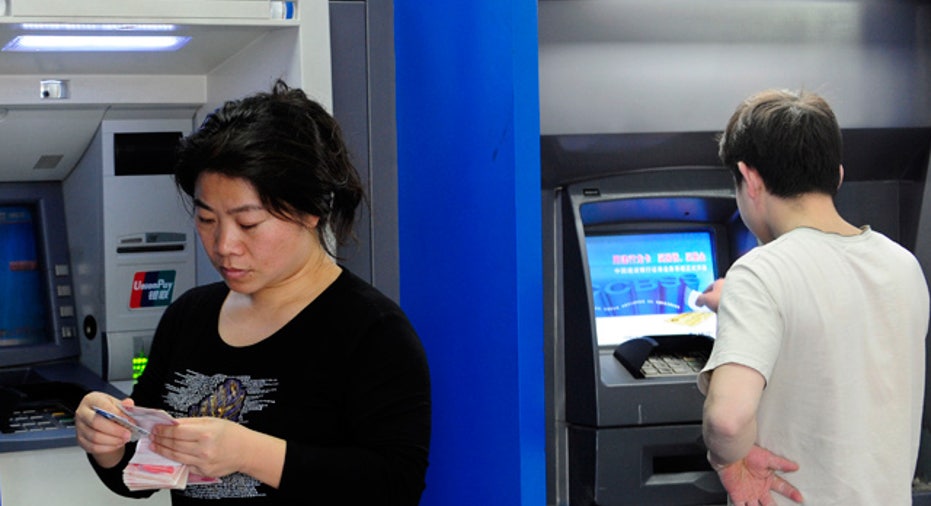Banks Forced to Pay Consumers Over ATM Fees (You Read That Correctly)

ATM fees may seem like a necessary evil in today's world, where being able to access cash nearly anywhere has become a reality, but for a price. Consumers can pay anywhere from $2.50 to $5 when taking money out of a machine that is not owned by their bank, however, some banks have been the ones forced to pay up in recent months for not properly posting fee info outside of their ATMs.
Under the Electronic Fund Transfer Act, banks are required by law to post notices on or around the ATM – and not just within the digital screen -- about their ATM fees for non-customers. Class action suits against banks failing to post the info have been popping up across the country, according to USA Today, and in Michigan alone, more than 30 lawsuits are pending. Members of such class action suits can receive up to $1,000 if the court finds against the banks, and Independent Bank recently settled for $350,000 for not properly posting its fees, USA Today reported.
Matt Englett, partner at KEL attorneys, said many consumers are not actually aware that a separate fee notification must be visibly posted outside of an ATM. The class action suits being filed are worth pursuing, Englett said, because many banks are purposely not posting their fees.
"It's not a nuisance lawsuit by any means," he said. "If you're already in the process of getting your money and then the fee pops up, you're more apt to continue with the transaction, which is probably why they aren't putting the signs up outside the machines."
But Doug Johnson, vice president of Risk Management Policy at the American Bankers Association, said the consumer lawsuits that have reportedly been cropping up are inconsequential and will not do anything to benefit bank customers in the end.
"We view these suits as frivolous," Johnson said. "They are only costing our customers money -- they're in no way helpful to bank customers. The customer has on the screen, the ability to know precisely the amount of what the surcharge will be, and the ability to opt out."
Fees vary greatly from machine to machine, Englett said, and consumers that use ATMs not surrounded by other banks tend to pay the highest price in fees, because there are no other options.
"Anytime they put an ATM somewhere that cash is necessary, and there is nothing else around, that's where the fees will be highest," he said.
Consumers have few options when it comes to ATM fees, Englett added. Going to the bank where they hold their account is best, because they will not be charged a fee. Or, reading the fee signs and choosing the ATM option with the lowest card fee is another option.
According to Johnson, there is some confusion surrounding adherence to the law, because the FDIC had originally said the fee notice onscreen was sufficient, but then backtracked on it and said it was necessary for banks to also post a note outside of the ATM.
"On-screen notifications are much less subject to being vandalized," Johnson said. "I believe that to the extent the banks understand their legal responsibility, they will adhere to it."
Englett said he expects the suits to continue coming down the pipe until banks step up and follow the law accordingly.
"The banks want it to seem like this is some kind of a scam these attorneys are running, but they are not adhering to the law," he said. "Lawyers hold them accountable, and hold their feet to the fire."



















